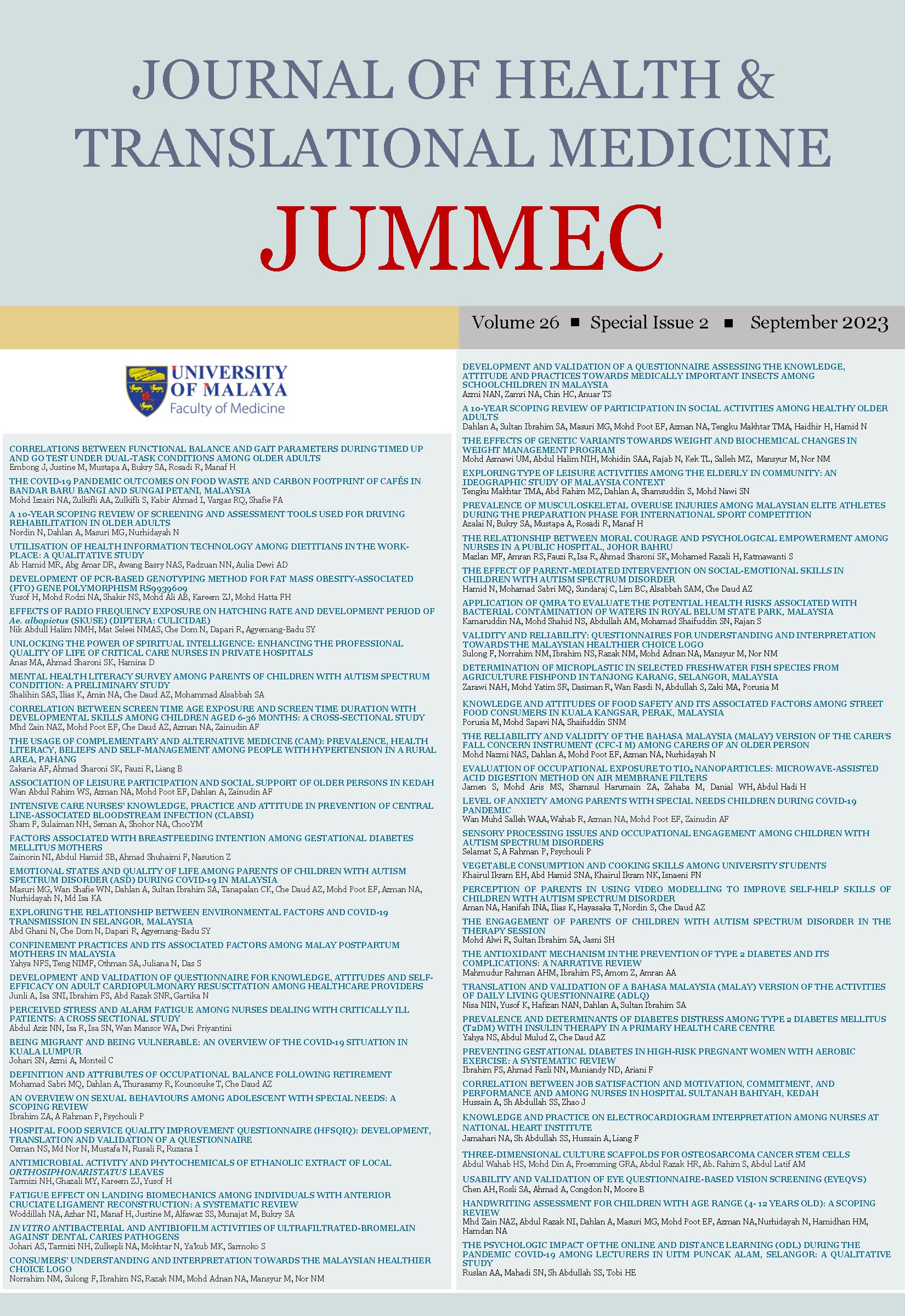CONFINEMENT PRACTICES AND ITS ASSOCIATED FACTORS AMONG MALAY POSTPARTUM MOTHERS IN MALAYSIA
Received 2023-07-08; Accepted 2023-09-06; Published 2023-09-15
DOI:
https://doi.org/10.22452/jummec.sp2023no2.16Keywords:
confinement practices, Malay, Malaysia, Postpartum Mothers, Postpartum CareAbstract
There are several confinement practices among the Malay community. It was noted that some of them can be scientifically proven beneficial to the body while some of them have unclear purposes of action and can be potentially harm. Thus, this study is aimed to identify the confinement practices and their associated factors among Malay mothers during the postpartum period. A cross-sectional study (n = 306) was conducted among Malay mothers and the respondents recruited through a validated self-administered questionnaire. The participants were recruited through convenience sampling. The survey was conducted online, in which the advertisement was disseminate through social media and online messenger (WhatsApp). Overall, majority of the Malay mothers adhered to confinement practices (100%). Mothers who undergo spontaneous vaginal delivery (SVD) were associated with doing postpartum massage (AOR 5.31, 95%CI 2.72-10.39), consuming traditional herbs (AOR 2.022, 95%CI 1.11-3.70), and showering every day (AOR 3.46, 95%CI 1.08-11.07). Meanwhile, mothers with better household incomes tend to have meals prepared for confinement (AOR 1.99, 95%CI 1.19-3.32) and postpartum massage (AOR 2.75, 95%CI 1.18-6.41). Malay mothers with SVD and better income tend to adhere to confinement practices. However, the results of this study are not generalized to other ethnicities in Malaysia (Chinese, Indian, and others).
Downloads
Downloads
Published
Issue
Section
License
All authors agree that the article, if editorially accepted for publication, shall be licensed under the Creative Commons Attribution License 4.0 to allow others to freely access, copy and use research provided the author is correctly attributed, unless otherwise stated. All articles are available online without charge or other barriers to access. However, anyone wishing to reproduce large quantities of an article (250+) should inform the publisher. Any opinion expressed in the articles are those of the authors and do not reflect that of the University of Malaya, 50603 Kuala Lumpur, Malaysia.


